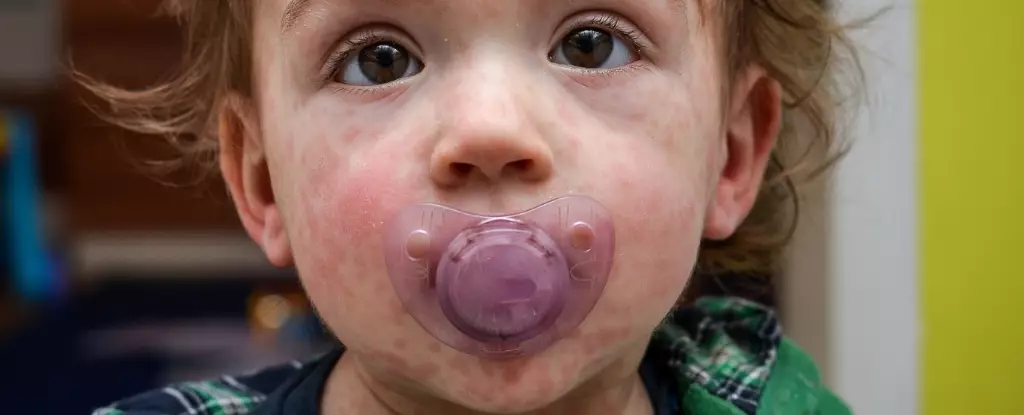The alarming rise in measles cases worldwide, now reported at over 10 million, underscores a critical public health challenge. The most recent investigation by the World Health Organization (WHO) and the U.S. Centers for Disease Control and Prevention (CDC) reveals a staggering 20% increase from the previous year. This situation indicates significant gaps in vaccination coverage that need urgent attention. The history of measles, coupled with its highly infectious nature, demands both a reevaluation of current health strategies and a recommitment to vaccination programs globally.
Measles represents not only a significant health risk but also a poignant reminder of the consequences of inadequate immunization. The study highlights that for any hope of preventing outbreaks, at least 95% of the population must receive two doses of the measles/rubella vaccine. Regrettably, current statistics indicate that only 83% of children globally received their first dose in 2023, a number stagnant since 2022 and down from 86% prior to the COVID-19 pandemic. Even more concerning is that only 74% received their second dose. These figures point to a persistent problem: the need for comprehensive strategies to enhance vaccine access.
Despite the proven efficacy of the measles vaccine, which has saved millions of lives over the past half-century, failures in vaccine distribution have placed vulnerable populations at increased risk. WHO’s Director-General Tedros Adhanom Ghebreyesus emphasized the importance of immunization, stating that it is vital to invest in vaccine access for all, regardless of geographic location. This is particularly essential for at-risk groups, including children under five, who are disproportionately affected by measles and its complications.
Tragic consequences have emerged as a result of these immunization gaps: the measles virus has claimed an estimated 107,500 lives in 2023 alone, a figure that illustrates the devastating human cost of this preventable disease. While there has been a slight decrease from the previous year, it is critical to note that this was primarily due to improved nutrition and health services in certain regions, allowing fewer children to succumb to the disease. The acknowledgment that children are still dying from measles demonstrates a failure in public health systems that must be urgently addressed.
The Call for Action: Bridging the Vaccine Divide
The consequences of the current measles crisis are obfuscating significant achievements in global health. By the end of 2022, 82 countries had either eliminated measles or maintained eliminate status, showing that it is indeed possible to combat this disease effectively. However, the WHO and CDC reported that 57 countries experienced significant outbreaks in 2023, signaling a regression in these hard-won public health victories. The vast majority of these outbreaks occurred in the African region, bringing to light disparities in immunization access that must be confronted head-on.
As the global target to eliminate measles as an endemic threat by 2030 hangs in the balance, the need for targeted interventions has never been more pressing. The urgency is particularly pronounced in fragile and conflict-affected areas, where access to health services and vaccines is severely hampered. Efforts must prioritize reaching all children with the requisite two doses of the measles vaccine, fostering both awareness and infrastructure that promote immunization.
The situation faced by the world in relation to measles is a sober reminder of the vulnerabilities in public health that can arise from complacency. Moving forward, it is paramount that governments, health organizations, and communities collaborate to enhance vaccination campaigns. This includes not only increasing the availability of vaccines but also addressing misinformation that can deter parents from seeking immunization for their children.
A cohesive, international response involving policy adjustments, educational initiatives, and enhanced healthcare access is vital to reversing the trends reflected in the recent findings. The urgency of protecting children from preventable diseases like measles must be prioritized, as the cost of inaction is measured in lives lost and public health opportunities squandered. It’s clear that without concerted, immediate action, the outcomes of the current crisis could reverberate far beyond just the statistics, impacting generations to come.


Leave a Reply